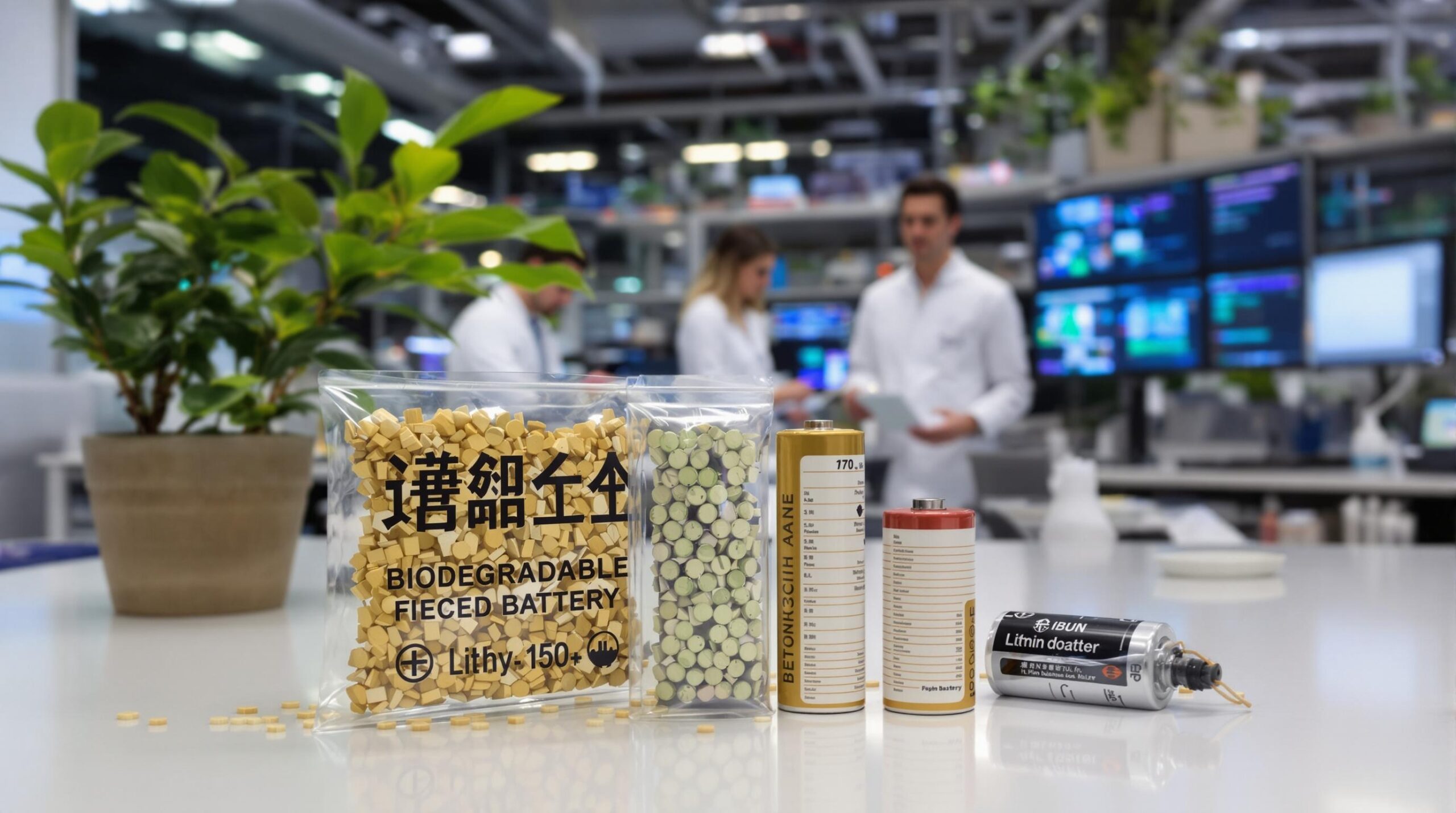A groundbreaking step in battery technology is poised to address the mounting issue of electronic waste. Scientists and engineers have unveiled a biodegradable battery that might reshape our approach to the problem. This innovation offers a sustainable alternative to conventional batteries and could significantly reduce environmental harm. By integrating biodegradable materials, the new battery highlights both efficiency and ecological responsibility.
Understanding the Electronic Waste Challenge
Electronic devices are indispensable in modern life, but they create an enormous amount of waste each year. According to the Global E-Waste Monitor, the world generated over 53 million metric tons of e-waste in 2019. A significant portion of this waste comes from discarded batteries. Traditional batteries contain hazardous materials like lead, cadmium, and mercury. These substances leach into the environment and pollute water, air, and soil.
Conventional battery disposal practices are largely inadequate. Many discarded batteries end up in landfills, releasing toxic chemicals and exposing communities to health risks. Recycling processes for traditional batteries are expensive, complicated, and not always feasible in developing nations. These challenges make proper e-waste management an ongoing global concern.
The Science Behind Biodegradable Batteries
Scientists are harnessing natural, organic materials to build functional biodegradable batteries. Some designs utilize cellulose derived from wood, while others incorporate silk or melanin. These materials are non-toxic and break down harmlessly in the environment. When disposed of, the batteries decompose, leaving behind little or no polluting residue.
Engineers have focused on creating stable, high-performance biodegradable cells. These batteries offer sufficient energy for many low-power applications, including wearable sensors and medical devices. They function efficiently during their use phase and then safely disintegrate after disposal. This approach marks a significant departure from the persistent waste left by conventional batteries.
Potential Impact on Electronic Waste Management
The introduction of biodegradable batteries could disrupt how industries and consumers dispose of electronic devices. With non-toxic materials, the risk of environmental contamination plummets. Municipalities and manufacturers may spend less on hazardous waste management. The new technology also lessens the urgency to remove batteries before recycling devices, simplifying processes for both consumers and facilities.
Government agencies have shown keen interest in the scalability of biodegradable batteries. Policies and incentives can encourage manufacturers to adopt these eco-friendly alternatives. Transitioning toward biodegradable options could foster a cleaner environment while stimulating economic growth in eco-technology sectors. This change represents a tangible measure that addresses the heart of the e-waste problem.
Applications of Biodegradable Batteries
Biodegradable batteries are currently best suited for applications requiring only modest power supplies. Medical implants, drug delivery sensors, and environmental monitoring tools are early beneficiaries of this technology. In some devices, battery removal for end-of-life processing is impractical, making biodegradability crucial. The seamless integration of decomposable batteries streamlines device disposal and protects sensitive ecosystems.
Wearable electronics are another promising area for biodegradable cells. Temporary fitness trackers or health monitors increasingly favor single-use components. Users can safely discard these products without the worry of landfill pollution. As research continues, biodegradable battery performance is expected to improve, broadening their practical applications.
Key Advantages Over Traditional Batteries
Environmentally, biodegradable batteries offer a major advantage: they do not contribute to persistent chemical pollution. The materials break down naturally, unlike plastics and metals that remain intact for decades. Manufacturers can avoid costly and hazardous battery disposal regulations, especially in sensitive markets like healthcare or children’s products.
Another advantage involves reducing society’s dependence on limited metallic resources. Elements like lithium and cobalt are scarce and environmentally damaging to extract. By using abundant natural materials, biodegradable batteries bring resilience to supply chains and reduce geopolitical risks related to mining.
Remaining Challenges and Considerations
Despite the promise, biodegradable batteries face significant technical challenges. Their current energy density remains below that of conventional lithium-ion counterparts. This limitation prevents their use in high-drain devices like smartphones or electric vehicles. Researchers are actively improving performance, but breakthroughs are still required.
Manufacturing scalability is another potential barrier. Creating biodegradable batteries at commercial volumes requires entirely new industrial processes. Adopting standardized quality and safety measures will help build consumer confidence. Collaborations between academic institutions and private companies are underway to push the technology from laboratory benches to market shelves.
Collaborative Innovation and Future Prospects
Biodegradable battery research benefits from interdisciplinary partnerships. Chemists, materials scientists, and engineers each contribute unique expertise to accelerate development. Universities are working closely with industry leaders to commercialize prototypes and test environmental safety. These collaborations are essential for scaling up production and meeting global demand.
Future breakthroughs could soon make biodegradable batteries commonplace in everyday electronics. Efforts to enhance charging speed, capacity, and reliability are already yielding results in laboratories worldwide. As commercial adoption increases, businesses may invest heavily in refining the technology. The pursuit of affordable, high-performance biodegradable batteries will open new market opportunities and benefit society at large.
Conclusion: A Pivotal Step Toward a Greener Tomorrow
The revolutionary development of biodegradable batteries signals hope in the fight against escalating electronic waste. These eco-friendly alternatives offer a real solution to one of the planet’s most persistent environmental issues. Although technical hurdles remain, the growing momentum behind research and development is undeniable.
Adoption of biodegradable batteries promises cleaner urban environments, reduced health risks, and new economic possibilities across several industries. The path forward requires collaboration, innovation, and supportive policy frameworks. Together, they will ensure that sustainable battery technology transforms waste management and preserves the planet for future generations.


